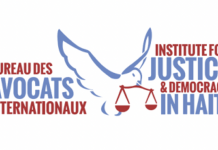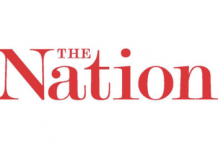In a letter to members of the United States Congress who had urged the UN to take responsibility for the cholera outbreak, Ban Ki Moon, the UN’s secretary-general, reiterated that the UN’s legal office has decided the claims are “not receivable” because of the UN’s privileges and immunities. The UN has offered little insight into its reasoning, except that consideration of the claims would involve a review of “political and policy matters”. That statement has only raised more questions, including whether “dumping disease-laden waste water in rivers is UN policy,” as a reporter asked at a press briefing last week.
Critics argue that the UN’s stance is tantamount to claiming impunity—that the UN, an organisation whose mission involves promoting the rule of law, is putting itself above it. The Haitians’ lawyers now plan to sue the UN in Haitian and United States courts. If a court decides to hear the claims, the case could have far-reaching implications for peacekeeping practices around the world.
…The bacterium, meanwhile, has killed nearly 8,200 Haitians and made unwell close to 665,000, about 7% of the population. Waterborne diseases spread fast in Haiti because the country lacks proper sewerage. The rainy season is especially problematic, and although Tropical Storm Chantal did not make a direct hit on Haiti last week, the additional rain will probably cause cholera cases to spike.
Reuters cited the lawyers’ (from the Institute for Justice and Democracy in Haiti) response to Ban’s letter:
“The U.N.’s latest explanation last week, in response to a letter of May 30 signed by 19 members of the House of Representatives, was a one-line sentence. They and the cholera victims deserve a better and more just response,” IJDH head Brian Concannon told Thomson Reuters Foundation.
“There were also disingenuous and not quite accurate claims made about the U.N.’s progress in combating cholera that haven’t had impact on the ground,” Concannon, a human rights lawyer, said in a telephone interview from Boston.
He said the U.N. has refused to consider resolving the cholera victims’ claims outside of court, meet with victims or their lawyers, and set up a claims commission as required by its own treaty.
With the start of the rainy and hurricane season, aid agencies say cholera cases are set to increase, with a 40 percent rise in Haiti’s cholera cases already reported between May and June of this year in Haiti, according to the U.N. Office for the Coordination of Humanitarian Affairs (OCHA).
“Predictions suggest up to 100,000 people could be affected by the end of the year, while funding gaps have led to a serious decrease in the capacity to respond,” OCHA said in its latest report on Haiti.





